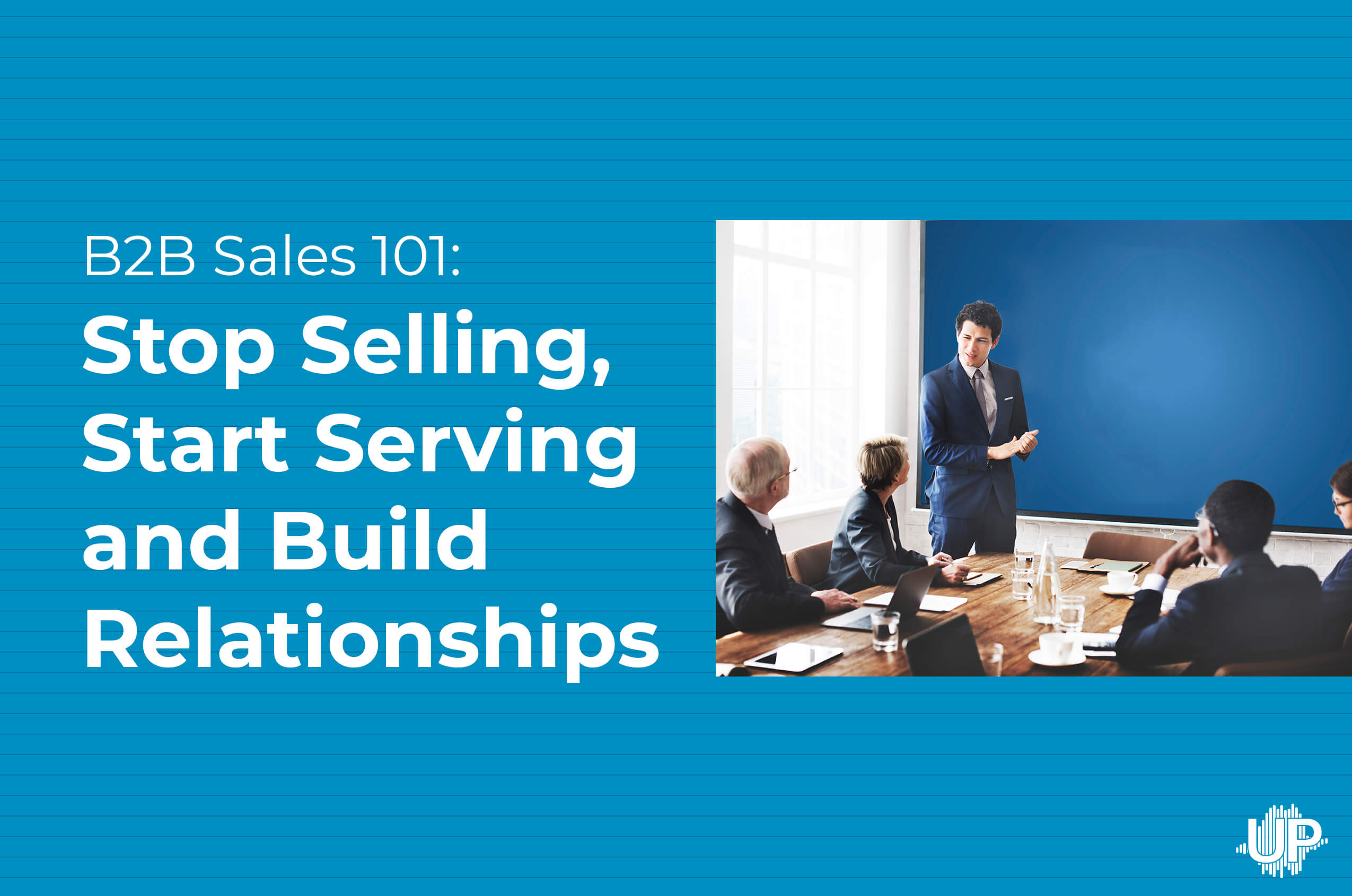
The traditional approach of aggressive selling is quickly becoming obsolete. The future lies in serving your clients and building lasting relationships.
This article delves into why the shift from selling to serving is beneficial and essential, exploring strategies for understanding your client needs, establishing trust, and personalizing solutions.
Businesses can transform transactions into meaningful partnerships by focusing on emotional intelligence and adding a human touch. Dive into the insights and practical strategies needed to excel in today's B2B sales space.
The Limitations of Traditional Selling
Traditional selling in B2B markets is becoming obsolete. This approach, focused on aggressive sales tactics and closing deals quickly, often ignores the complex needs of today's businesses.
It's transactional, prioritizing immediate sales over building lasting client relationships. This misalignment between what sellers offer and what your clients need leads to lost opportunities and eroded trust.
B2B buyers now have access to vast information and options, reducing their reliance on sales reps for insights. They prefer engaging with sellers who act as trusted advisors, offering genuine advice and solutions that meet their specific requirements.
Sticking to traditional selling impacts your sales performance and damages reputation and client relationships. In contrast, a consultative, relationship-driven approach aligns with modern buyer expectations, fostering trust and long-term loyalty.
The Power of Serving in B2B Sales Process
This service-based strategy involves deep listening, asking the right questions, and genuinely seeking to solve problems. It's about offering insights and solutions that precisely fit your client's unique situation.
This method addresses immediate needs and anticipates future challenges, demonstrating a commitment to the client's long-term success.
Adopting a serving mindset leads to stronger, trust-based relationships. Clients are more likely to engage in repeat business and refer others when they see a seller as a trusted advisor who adds real value to their business.
Serving transforms sales from a transactional exchange into a collaborative partnership. This shift not only enhances client satisfaction but also drives sustainable business growth.
Building Lasting Relationships:
Building lasting relationships is fundamental in B2B sales. It's about shifting focus from quick transactions to developing deep, mutually beneficial partnerships.
This section explores key strategies for understanding client needs, establishing trust, and delivering tailored solutions, which are vital for forging strong, enduring connections with clients.
- Understanding Client Needs: success in B2B sales hinges on understanding client needs which requires active listening and engaging in meaningful conversations to uncover surface-level requirements and deeper business objectives and challenges.
- The Role of Trust in B2B Sales: trust turns a seller into a reliable advisor, making clients more open to collaboration and long-term partnerships.
- Tailored Solutions for Client Success: offering solutions tailored to the client's needs reinforces the value of a service-oriented approach.
Implement Strategies for Relationship-Centric B2B Sales
To transition to relationship-centric B2B sales, implement strategies prioritizing long-term client success over short-term gains. This involves:
- Consultative Selling: Engage in a consultative process where understanding the client's business and challenges comes first. Offer solutions based on deep insights into their needs, not just your product offerings.
- Value Proposition: Clearly articulate how your solutions address specific client pain points. Focus on your value to their business, helping them see the tangible benefits of working with you.
- Feedback Loops: Establish regular feedback mechanisms to ensure your solutions align with client needs over time. This demonstrates commitment to their ongoing success and adapts to their evolving challenges.
- Education and Resources: Provide clients with relevant educational content and resources. This positions you as a thought leader and trusted resource in your industry.
- Personalization: Tailor your communication and solutions to each client. Personalized interactions show that you view clients as unique businesses with specific needs, not just another sales target.
Emotional Intelligence in B2B Sales: Navigating Complex Relationships
Emotional intelligence (EI) is crucial for navigating the complex dynamics of B2B sales.
It involves understanding and managing one's own emotions and recognizing and influencing the emotions of others. In B2B sales, EI enables sales professionals to:
- Read Situations: Gauge the mood and tone of interactions, adjusting communication styles to match the client's preferences and emotional state.
- Build Rapport: Foster a genuine connection with clients by showing empathy, listening actively, and responding appropriately to their concerns and needs.
- Handle Objections: Approach objections with a calm, understanding mindset, using them as opportunities to understand further and address client concerns.
- Facilitate Decision-Making: Help clients navigate their decision-making processes by understanding the emotional factors, such as fear of change or risk aversion, and addressing these sensitively and effectively.
- Maintain Relationships: Use emotional insights to maintain and deepen relationships over time, recognizing and adapting to client needs and emotional state changes.
Add Human Element in your B2B Sales Interactions
Incorporating a human element into B2B sales interactions transforms transactions into meaningful exchanges.
This approach values authenticity, empathy, and genuine connection, moving beyond mere business transactions to build real human relationships. Key practices include:
- Authentic Communication: Be genuine in every interaction. Authenticity fosters trust and rapport, encouraging open and honest dialogue.
- Understand Beyond Business: Recognize the individual behind the business role. Showing interest in clients' broader goals and challenges strengthens connections.
- Empathy: Demonstrate empathy by acknowledging and addressing clients' concerns and challenges. Understanding from their perspective builds more profound relationships.
- Personalized Touch: Customize interactions to reflect the client's preferences and history with your business. Personal touches show clients they are valued and understood.
Listen to the Thoughtful Entrepreneur
More Resources from UpMyInfluence:
How to Be An Exceptional Podcast Host


